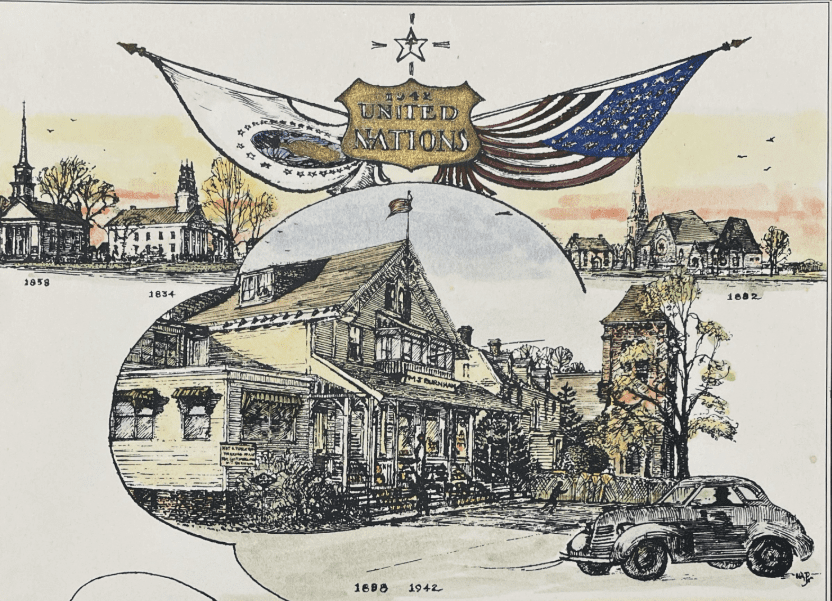All Politics Is Local: COVID Five Years Later, Part Two

Audio By Carbonatix

Photo by Hartono Creative Studio on Unsplash
‘All Politics is Local’ is an opinion column written by John Lyons, a member of West Hartford’s Democratic Town Committee.
By John Lyons
Each month I examine national issues and offer my thoughts on how West Hartford ‘s residents are impacted. You’ll be surprised at how much seemingly small out-of-sight issues have a big impact on all of us.
This is part two of a look back at the COVID-19 pandemic. You can read the previous column here.
To me it started with Trump wanting to be front and center at the daily press briefings. Rather than the medical experts leading with Vice President Mike Pence moderating and focusing on the “whole of government” effort to solving the crisis, it was Trump. One can argue over what the first misstep was, whether Trump’s claim it would all be gone in a few weeks, or his questioning publicly of ways to treat the virus and offering ideas for solutions that were not medically practical – but in fairness, anyone who wasn’t an infectious disease expert could have said the same thing.
But it was a problem because of who said it and how many people heard it. It was off-message and created doubt in the minds of many non-scientific people watching the situation develop. Science is not exact and when there are questions or changes in understanding of things, science adapts and revises their guidance.
Trump did not understand, and the mixed messaging would confuse people and make them question the rapidly evolving scientific understanding of the disease and the fact that science evolves in general.
There was a presidential election looming and COVID was proving to be a big problem for the Trump administration. While gas prices had fallen due to the evaporation of demand for oil on a global scale, stock markets had also fallen. They would begin a long recovery later in the spring of 2020.
With most people fearing COVID and the lack of medical treatment and preventative options, folks began to look elsewhere for leadership and that was the emergence of Joe Biden, who understood how Washington worked and benefitted from a high level of trust from people. After floundering in the early primaries and caucuses, Biden emerged as the Democrats’ frontrunner as the virus spread. That was no coincidence, as a turn to someone who people believed as better equipped to manage the crisis had begun.
Biden would win the election in what was a somewhat close election from a popular vote perspective, but a strong electoral college edge.
The rise of COVID-19 conspiracy theories was not just a byproduct of fear or confusion; it was deeply political. As the virus spread across the globe, it collided with existing fault lines in American and global politics, turning public health into a battlefield of ideology, identity, and power. Misinformation and misunderstanding also spread across the globe at breakneck speed.
In the United States, the pandemic arrived in a polarized political climate. Trust in government, media, and scientific institutions had begun to erode at a faster pace as laypeople who did not understand infectious disease trusted dubious sources for their information.
COVID became a topic through which partisanship intensified. For many on the right, initial skepticism about the severity of the virus morphed into broader theories that it was exaggerated or even manufactured to undermine treatment efforts. Mistrust of pharmaceutical companies and historic grievances about systemic inequality led to alternative narratives about vaccine development and distribution. In most every case, conspiracy theories were less about facts and more about reinforcing tribal identities and attacking perceived enemies or, as soon would be discovered, an extremely effective method of raising money for dubious causes or candidates.
The late 2020 “Stop the Steal” campaign was an example of this. The misinformation from prior months regarding COVID laid the groundwork and made people realize they could propagate falsehoods and influence people by doing so.
The government response to COVID – with lockdowns, mask mandates, and vaccine requirements – also stoked fears of overreach. These anxieties were perpetuated by political leaders and a growing legion of online influencers who framed public health measures as authoritarian tactics convincing millions that these were major steps in the wrong direction and not toward solving the pandemic crisis. Meanwhile, foreign actors and disinformation campaigns exploited the chaos, amplifying divisive messages and deepening domestic distrust. The foreign influence further created doubts in the validity of the 2020 election.
The COVID response and subsequent fallout opened the doors to conspiracy theories about a whole range of subjects, but the vast majority of them were political in nature and intended to bring in donations to various causes. It gave rise to influencers who would impact future elections and steer the country toward more populism in politics. All of this was borne of the lessons from COVID and the backlash to government handling of the pandemic. Lots was learned by people who aren’t using their platforms responsibly or for the greater good.
Ultimately, the rise of COVID conspiracy theories revealed how deeply politics and political persuasion now shape our perception of truth. In a fragmented information environment, where ideology often trumps evidence, conspiracy theories become tools of political mobilization, fund raising, elections and policy.
All are symptoms of a democracy struggling to find morality and a shared reality.
The views expressed represent the opinion of John Lyons, and are not intended to represent the opinion of We-Ha.com or the West Hartford Democratic Town Committee.
Like what you see here? Click here to subscribe to We-Ha’s newsletter so you’ll always be in the know about what’s happening in West Hartford! Click the blue button below to become a supporter of We-Ha.com and our efforts to continue producing quality journalism.



